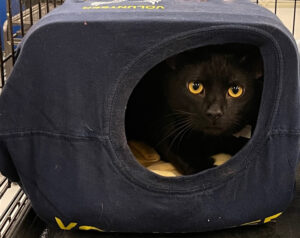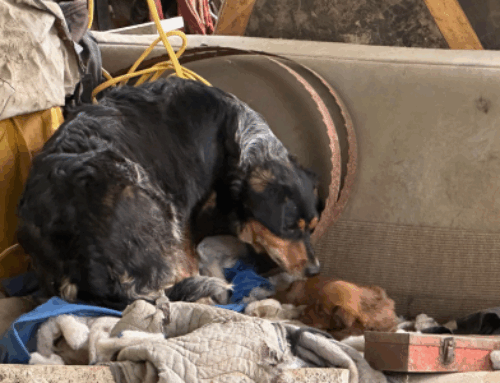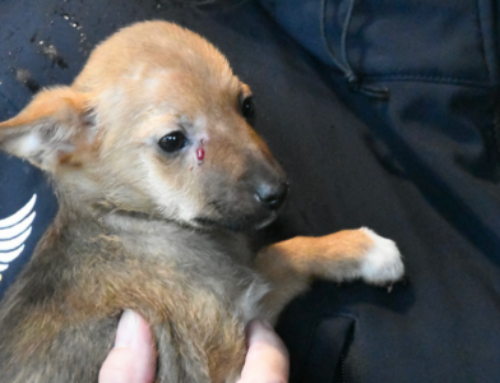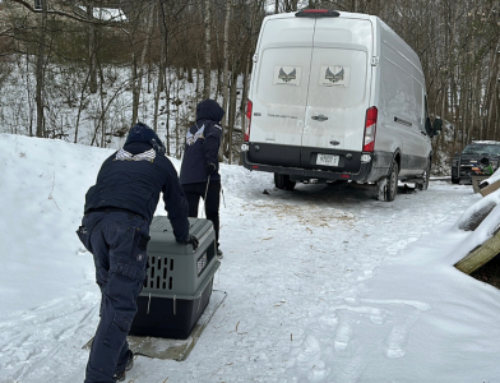Picnics. Barbecues. Fireworks. Many people have fond memories and traditions from celebrations around the 4th of July that date back to their childhoods.
But for the animals we share our communities with, both seen and unseen – and even some of the humans – fireworks create terror and can also inflict great harm on these fellow citizens of our planet.
The tradition of fireworks on Independence Day is a long one. It’s thought that the first 4th of July celebration, on July 4, 1776, incorporated fireworks. Since that time, it’s become a holiday staple, with increasingly lavish and elaborate displays that light up the skies and can fill us with wonder and joy, and with fireworks now more accessible to people everywhere.
But how might our feelings about fireworks change if we knew the dark side of these light displays?
From captive animals in zoos, farmed animals, homeless animals, and wildlife – to even the dogs, cats, and other animals we share our homes with – fireworks are dangerous and stressful.
The banging terrifies animals who often have hearing many times more sensitive than humans. Many of us have witnessed our animal companions shaking, hiding, and trembling in fright during fireworks displays; in fact, it’s estimated that more companion animals go missing during the fourth of July holiday than any other time, as they try to break free and, in a panic, run for their lives.
In boarding facilities, puppy mills, zoos, factory farms, laboratories, veterinary hospitals, and other places where animals are caged or confined, the terror is just as real.
Wildlife often abandon their homes and nests in terror. Wild birds have died, sometimes in mass fatalities as they fly, disoriented and in terror, through the dark, sometimes knocking into one another, into power lines or buildings; sometimes suffering heart attacks in fear. Wild animals often flee in terror across crowded roadways where they are hit by cars in higher numbers.
The pollutants from fireworks can also cause longer-term harm to animals.
It’s ironic that a tradition of lights that symbolizes joy and wonder to so many also carries this dark side, one that can likewise affect our fellow humans who have PTSD or certain life experiences, like war veterans.
As a society, we need to reexamine whether our many traditions still serve us, or whether it might be time to evolve any of them into more compassionate customs. Given the growing body of evidence around fireworks, it becomes more apparent with every passing year that fireworks are a tradition needing a closer look.
One of the best ways to make a difference and celebrate the democracy of the United States is to talk to your local government officials about the multiple ways fireworks can cause harm, and call for a move to more compassionate traditions that are just as joyful and filled with wonder. Another important way to make a difference is to attend and support kinder and more humane celebrations that may already exist in your community, like laser light show displays, or, best of all, to stay home with your companion animals who may need your moral support and reassuring presence.
And of course, plan ahead to keep your companion animal family members safe this year and to reduce their stress. Here are some tips.
Keeping your companion animal(s) safe during fireworks displays
Begin planning early:
- Make sure everyone has a current microchip, collar, and tag.
- Take clear, current photos of your companions so you are prepared in case they go missing, like so many animals unexpectedly do during fireworks.
- Clear your calendar & plan to stay home with your companion animals. They need your moral support! If you need to be out, make sure to retain a trusted pet sitter well in advance.
On the day of:
- Make sure all your companion animals are well-exercised beforehand, and dogs are walked prior to the onset of fireworks.
- When fireworks begin, keep everyone securely indoors and give them a safe place to hide that feels secure to them but where they can’t escape or hurt themselves.
- Play soothing music to cover noises; many cats have been found to prefer classical and many dogs have been found to prefer reggae.
- Watch for neighborhood animals in distress.








Leave A Comment